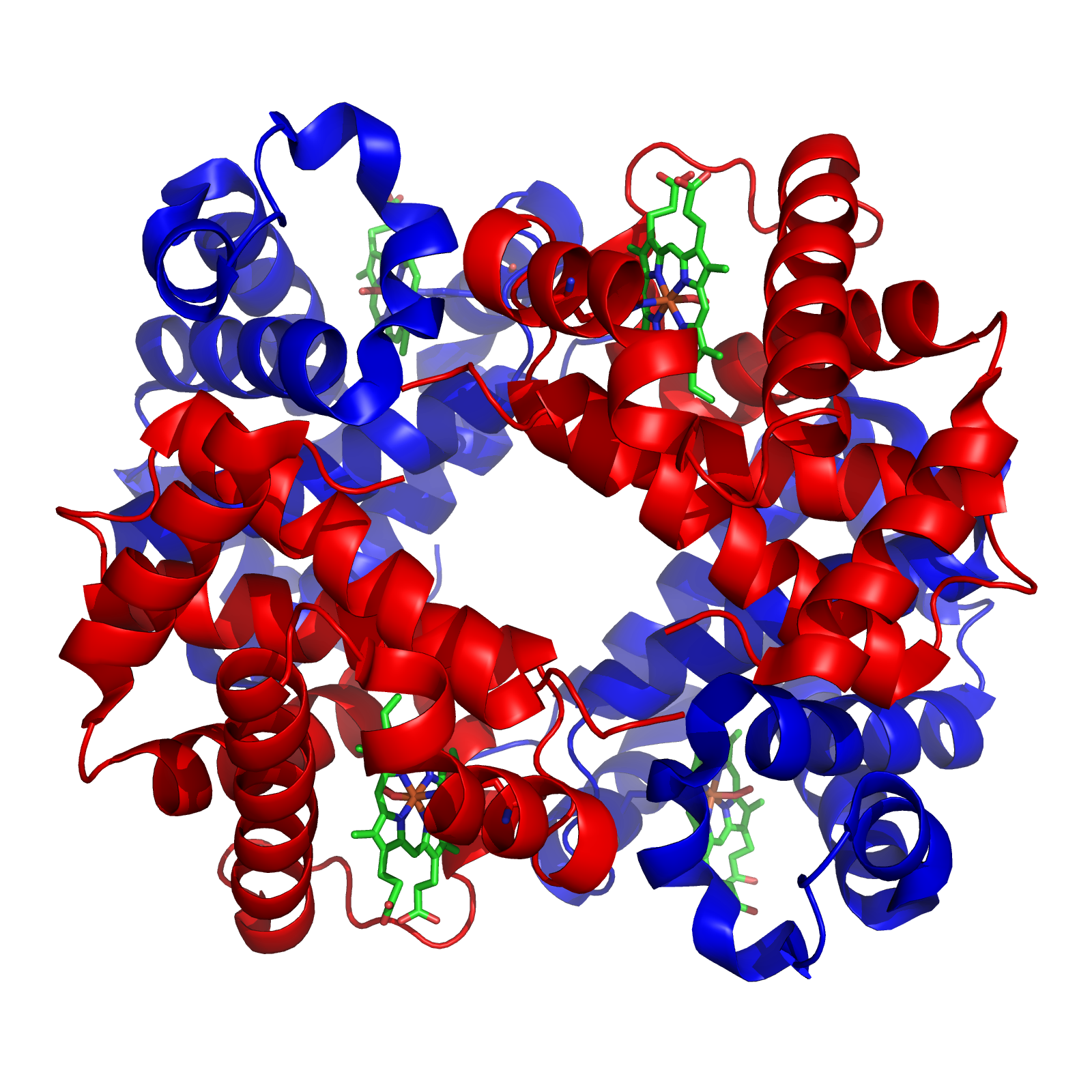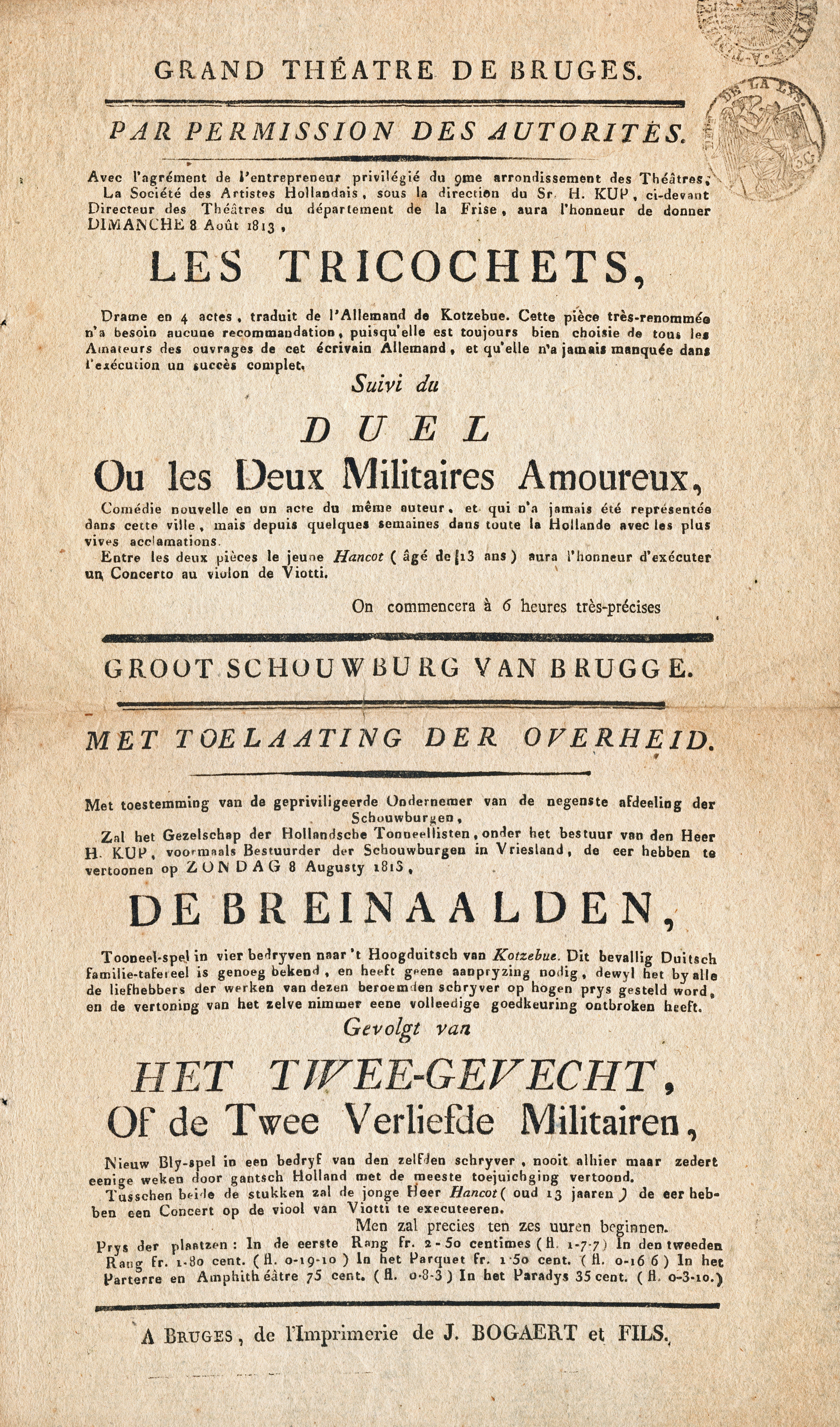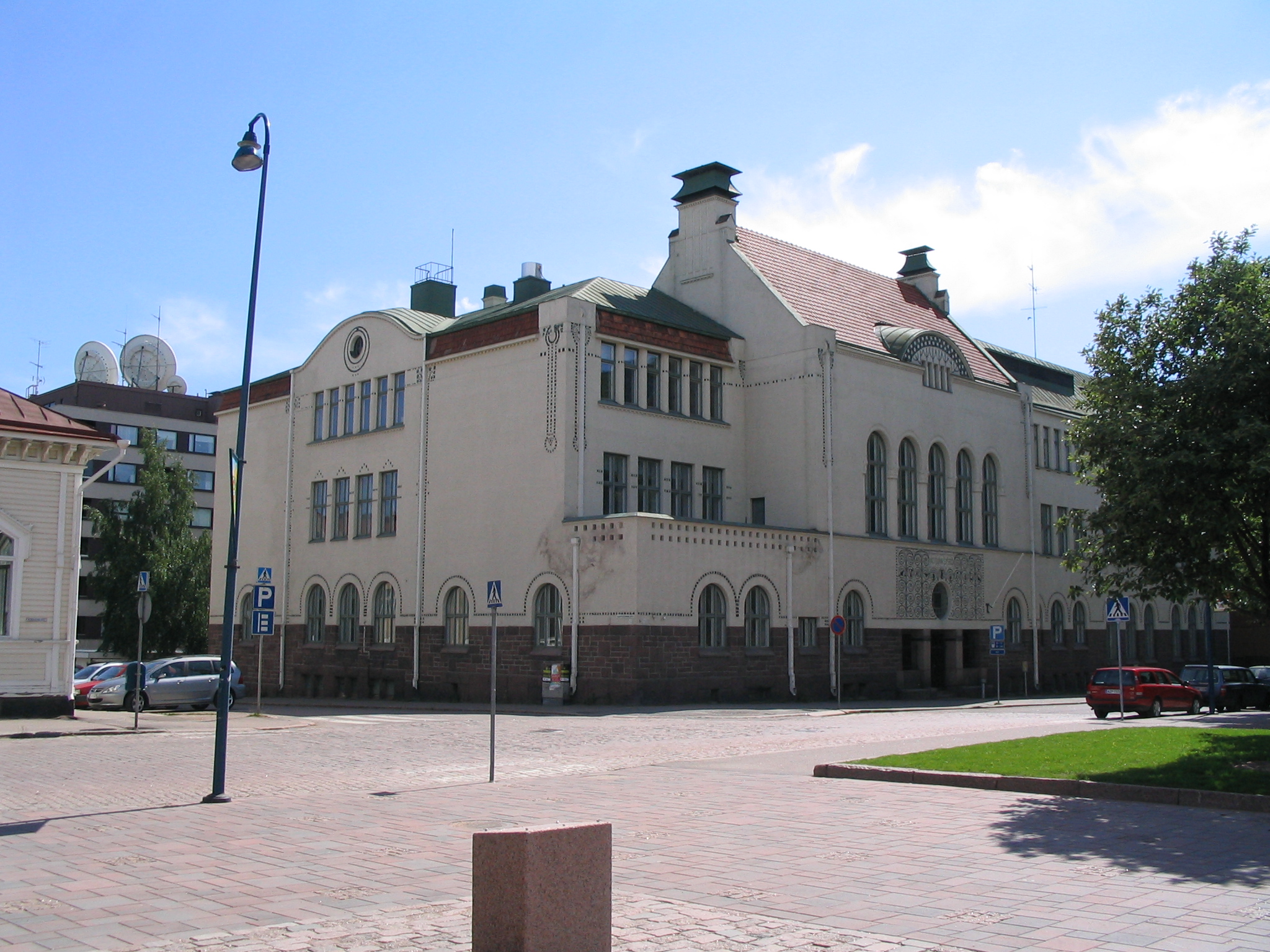|
Benjamin Wrench
Benjamin Wrench (1778–1843), was an actor, born in 1778 in London, where his father occupied ‘a lucrative appointment in the Exchequer.’ He seems to have been grandson of Sir Benjamin Wrench, M.D., of Norwich (d. 1747, aged 82) (see Notes and Queries, 5th ser. v. 48). His father died before he reached his seventh year, and having declined a proffered living and a commission in the army offered by General Tryon, a relative, Wrench adopted the stage as a profession, making his first appearance at Stamford, Lincolnshire, Stamford. Acting career Whatever ability he had was slow in ripening, and he had to rehearse for fourteen days the part of Francis in ''The Stranger'' before he could be allowed to essay it. Mrs. Hannah Henrietta Robinson Taylor (c1757-1837) 21 years his senior, was the co-manager of the Stamford & Nottingham circuit, whom he married (as her third husband) on 9 August 1802 at All Saints' Church, Stamford, she coached him carefully and brought out such ability ... [...More Info...] [...Related Items...] OR: [Wikipedia] [Google] [Baidu] |
Theatre Royal, Drury Lane
The Theatre Royal, Drury Lane, commonly known as Drury Lane, is a West End theatre and Grade I listed building in Covent Garden, London, England. The building faces Catherine Street (earlier named Bridges or Brydges Street) and backs onto Drury Lane. The building is the most recent in a line of four theatres which were built at the same location, the earliest of which dated back to 1663, making it the oldest theatre site in London still in use. According to the author Peter Thomson, for its first two centuries, Drury Lane could "reasonably have claimed to be London's leading theatre". For most of that time, it was one of a handful of patent theatres, granted monopoly rights to the production of "legitimate" drama in London (meaning spoken plays, rather than opera, dance, concerts, or plays with music). The first theatre on the site was built at the behest of Thomas Killigrew in the early 1660s, when theatres were allowed to reopen during the English Restoration. Initiall ... [...More Info...] [...Related Items...] OR: [Wikipedia] [Google] [Baidu] |
1843 Deaths
Events January–March * January ** Serial publication of Charles Dickens's novel ''Martin Chuzzlewit'' begins in London; in the July chapters, he lands his hero in the United States. ** Edgar Allan Poe's short story " The Tell-Tale Heart" is published in a Boston magazine. ** The Quaker magazine '' The Friend'' is first published in London. * January 3 – The ''Illustrated Treatise on the Maritime Kingdoms'' (海國圖志, ''Hǎiguó Túzhì'') compiled by Wei Yuan and others, the first significant Chinese work on the West, is published in China. * January 6 – Antarctic explorer James Clark Ross discovers Snow Hill Island. * January 20 – Honório Hermeto Carneiro Leão, Marquis of Paraná, becomes ''de facto'' first prime minister of the Empire of Brazil. * February – Shaikh Ali bin Khalifa Al-Khalifa captures the fort and town of Riffa after the rival branch of the family fails to gain control of the Riffa Fort and flees to Manama. Shaikh Mohamed bin Ahmed i ... [...More Info...] [...Related Items...] OR: [Wikipedia] [Google] [Baidu] |
1778 Births
Events January–March * January 18 – Third voyage of James Cook: Captain James Cook, with ships HMS ''Resolution'' and HMS ''Discovery'', first views Oahu then Kauai in the Hawaiian Islands of the Pacific Ocean, which he names the ''Sandwich Islands''. * February 5 – **South Carolina becomes the first state to ratify the Articles of Confederation. ** **General John Cadwalader shoots and seriously wounds Major General Thomas Conway in a duel after a dispute between the two officers over Conway's continued criticism of General George Washington's leadership of the Continental Army.''Harper's Encyclopaedia of United States History from 458 A. D. to 1909'', ed. by Benson John Lossing and, Woodrow Wilson (Harper & Brothers, 1910) p166 * February 6 – American Revolutionary War – In Paris, the Treaty of Alliance and the Treaty of Amity and Commerce are signed by the United States and France, signaling official French recognition of the ne ... [...More Info...] [...Related Items...] OR: [Wikipedia] [Google] [Baidu] |
Blood
Blood is a body fluid in the circulatory system of humans and other vertebrates that delivers necessary substances such as nutrients and oxygen to the cells, and transports metabolic waste products away from those same cells. Blood in the circulatory system is also known as ''peripheral blood'', and the blood cells it carries, ''peripheral blood cells''. Blood is composed of blood cells suspended in blood plasma. Plasma, which constitutes 55% of blood fluid, is mostly water (92% by volume), and contains proteins, glucose, mineral ions, hormones, carbon dioxide (plasma being the main medium for excretory product transportation), and blood cells themselves. Albumin is the main protein in plasma, and it functions to regulate the colloidal osmotic pressure of blood. The blood cells are mainly red blood cells (also called RBCs or erythrocytes), white blood cells (also called WBCs or leukocytes) and platelets (also called thrombocytes). The most abundant cells in vertebrate blood a ... [...More Info...] [...Related Items...] OR: [Wikipedia] [Google] [Baidu] |
August Von Kotzebue
August Friedrich Ferdinand von Kotzebue (; – ) was a German dramatist and writer who also worked as a consul in Russia and Germany. In 1817, one of Kotzebue's books was burned during the Wartburg festival. He was murdered in 1819 by Karl Ludwig Sand, a militant member of the '' Burschenschaften''. This murder gave Metternich the pretext to issue the Carlsbad Decrees of 1819, which dissolved the ''Burschenschaften'', cracked down on the liberal press, and seriously restricted academic freedom in the states of the German Confederation. Life Kotzebue was born in Weimar to the respected merchant Kotzebue family and was educated at Wilhelm-Ernst- Gymnasium in Weimar, where his uncle, the writer and critic Johann Karl August Musäus was among his teachers. In 1776 the young Kotzebue acted alongside Goethe in the latter's play ''Die Geschwister'' when it premiered in Weimar. In 1777, aged sixteen, he enrolled at the University of Jena to study legal science. He continued his st ... [...More Info...] [...Related Items...] OR: [Wikipedia] [Google] [Baidu] |
The Provoked Husband
''The Provoked Husband'' is a 1728 comedy play by the British writer and actor Colley Cibber, based on a fragment of play written by John Vanbrugh. It is also known by the longer title ''The Provok'd Husband: or, a Journey to London''. Vanbrugh had worked on a projected play ''A Journey to London'' for Cibber, a sharp comedy in the Restoration-style. Unfinished at his death in 1726, Vanbrugh left the manuscript to him. In need of a new play for the Drury Lane Theatre where he was a manager, Cibber finished it under a new title ''The Provoked Husband'' which echoed one of Vanbrugh's most popular works ''The Provoked Wife''. He reworked it substantially, softening the character of Lady Loverule who was renamed Lady Townly, and adding a more conventional happy ending than Vanbrugh had intended. The original cast included Robert Wilks as Lord Townly, Anne Oldfield as Lady Townly, Mary Porter as Lady Grace, John Mills as Manly, Colley Cibber as Sir Francis Wronghead, Sarah Thurm ... [...More Info...] [...Related Items...] OR: [Wikipedia] [Google] [Baidu] |
High Life Below Stairs
''High Life Below Stairs'' is a 1759 comedy play by the British writer James Townley.Worrall p.30 An afterpiece, it premiered at Drury Lane on a double bill with a revival of Dryden's ''The Mourning Bride''. A popular hit, it was frequently revived. The original Drury Lane cast John Palmer as Duke's servant, Thomas King as Sir Harry's servant, William O'Brien as Lovel, Richard Yates as Philip, John Hayman Packer as Freeman, Thomas Mozeen as Tom, John Moody as Kingston Mary Bradshaw as Cook, Frances Abington as Lady Bab's maid and Kitty Clive Catherine Clive (née Raftor; 5 November 1711 – 6 December 1785) Catherine ‘Kitty’ Clive (1711-1785, active 1728-1769) was a first songster and star comedienne of British playhouse entertainment. Clive led and created new forms of English ... as Kitty. References Bibliography * Baines, Paul & Ferarro, Julian & Rogers, Pat. ''The Wiley-Blackwell Encyclopedia of Eighteenth-Century Writers and Writing, 1660-1789''. Wiley-Blackwel ... [...More Info...] [...Related Items...] OR: [Wikipedia] [Google] [Baidu] |
The Poor Gentleman
''The Poor Gentleman'' is an 1801 comedy play by the British writer George Colman the Younger. It premiered at London's Theatre Royal, Covent Garden on 11 February 1801.Nicoll p.282 The original cast included Charles Murray as Lieutenant Worthington, Thomas Knight as Corporal Foss, Henry Erskine Johnston as Sir Charles Cropland, George Davenport as Warner, Joseph Shepherd Munden as Sir Robert Bramble, William Thomas Lewis as Frederick Bramble, John Waddy as Humphrey Dobbins, John Emery as Stephen Harrowby, John Fawcett as Doctor Ollapod, Maria Gibbs as Emily Worthington and Isabella Mattocks as Lucretia MacTab. It was revived in 1829 at the Theatre Royal, Drury Lane. In 1845 it appeared at the Chestnut Street Theatre in Philadelphia Philadelphia, often called Philly, is the List of municipalities in Pennsylvania#Municipalities, largest city in the Commonwealth (U.S. state), Commonwealth of Pennsylvania, the List of United States cities by population, sixth-largest city ... [...More Info...] [...Related Items...] OR: [Wikipedia] [Google] [Baidu] |
Lyceum
The lyceum is a category of educational institution defined within the education system of many countries, mainly in Europe. The definition varies among countries; usually it is a type of secondary school. Generally in that type of school the things that are taught are basic science and also in some part of that type of schools, some introduction to specific kind of jobs also may be done. History ''Lyceum'' is a Latin rendering of the Ancient Greek (), the name of a '' gymnasium'' in Classical Athens dedicated to Apollo Lyceus. This original lyceum is remembered as the location of the peripatetic school of Aristotle. Some countries derive the name for their modern schools from the Latin but use the Greek name for the ancient school: for example, Dutch has (ancient) and (modern), both rendered ''lyceum'' in English (note that in classical Latin the ''C'' in was always pronounced as a ''K'', not a soft ''C'', as in modern English). The name ''lycée'' was retrieved and utili ... [...More Info...] [...Related Items...] OR: [Wikipedia] [Google] [Baidu] |
Three Weeks After Marriage
''Three Weeks after Marriage'' is a comedy play by the Irish writer Arthur Murphy. An afterpiece, it premiered at the Theatre Royal, Covent Garden in London on 30 March 1776. It was a reworking of an earlier play ''What We Must All Come To'' which was staged in 1764, which had a poor reception. The cast included William Thomas Lewis as Sir Charles Racket, John Quick as Drugget, Isabella Mattocks as Lady Racket, Ann Pitt as Mrs Drugget and Jane Green as Dimity. The entire play takes place at a country house about four miles outside London. It was met "with great applause" and became a standard work, being played every year for the remainder of the century. It's performances continued well into the nineteenth century. The role of Lady Racket later became a signature for Frances Abington, and was also played by Dorothea Jordan Dorothea Jordan, née Bland (21 November 17615 July 1816), was an Anglo-Irish actress, as well as a courtesan. She was the long-time mistress of Princ ... [...More Info...] [...Related Items...] OR: [Wikipedia] [Google] [Baidu] |





